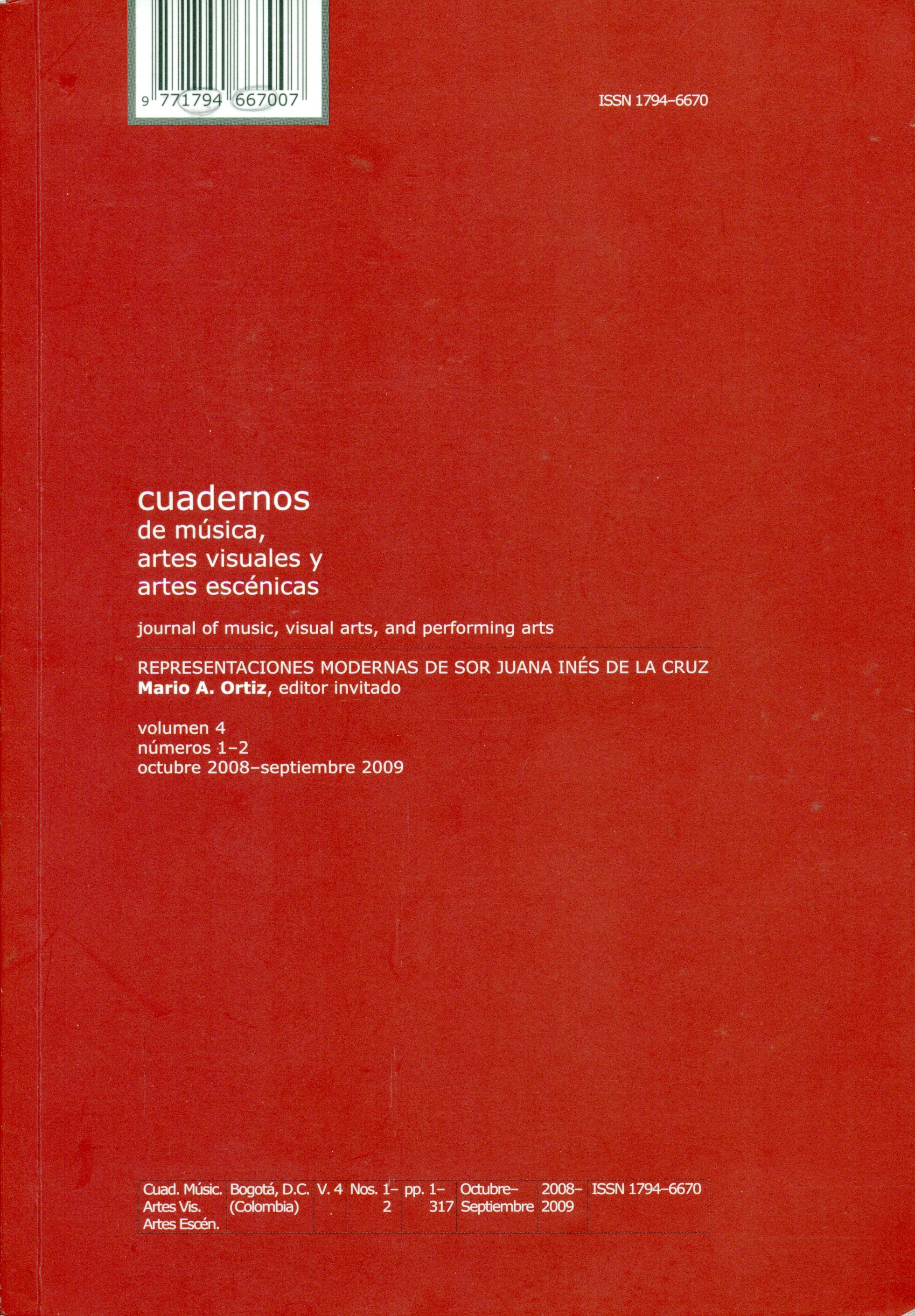Abstract
This paper analyzes the representation of Sor Juana in two musical compositions by U.S. American composers: John Adams’s oratorio El Niño (1999–2000) and Allison Sniffin’s cantata Óyeme con los ojos (Hear Me with Your Eyes): Sor Juana Inés de la Cruz on the Nature of Love (2006). Instead of the more common protofeminist and subversive representation of recent decades, Adams opts for “the other” Sor Juana, the author of the lyrical villancicos of the religious society of New Spain. In addition to examining Adams’s musico–poetic and spectacular texts, this article also studies the visual representation that illustrates the CD of El Niño: the prominent serigraph Mujer de mucha enagua, PA’TI XICANA (A Woman with a lot of Petticoat, FOR YOU CHICANA) by chicana artist Yreina D. Cervántez. In this visual representation, Sor Juana becomes part of a political and subversive whole, and joins zapatista revolutionary women, Mexican poet Rosario Castellanos, and the Mesoamerican goddess Tonantzin, in a provocative feminine discourse, both visually and verbally. Cervántez’s Sor Juana constrasts sharply with Adam’s representation, but gets closer to the one found in Sniffin’s work. In Óyeme con los ojos, based exclusively on Sor Juana’s poems, Sniffin explores the Mexican nun’s poetic treatment of love. The central movement of the cantata, “Danza a Tonantzin” (Dance to Tonantzin), is an elaborate fusion of two religious texts in honor of the Virgin Mary. By means of mixing Spanish and Nahuatl, modern and pre–Hispanic musical idioms and sonorities, and the Virgin Mary and the goddess Tonantzin, Sniffin presents a syncretic reading of Sor Juana’s poetic texts which results in an ingenious theological metaphor.This journal is registered under a Creative Commons Attribution 4.0 International Public License. Thus, this work may be reproduced, distributed, and publicly shared in digital format, as long as the names of the authors and Pontificia Universidad Javeriana are acknowledged. Others are allowed to quote, adapt, transform, auto-archive, republish, and create based on this material, for any purpose, provided the authorship is duly acknowledged, a link to the original work is provided, and it is specified if changes have been made. Pontificia Universidad Javeriana does not hold the rights of published works and the authors are solely responsible for the contents of their works; they keep the moral, intellectual, privacy, and publicity rights.
Approving the intervention of the work (review, copy-editing, translation, layout) and the following outreach, are granted through an use license and not through an assignment of rights. This means the journal and Pontificia Universidad Javeriana cannot be held responsible for any ethical malpractice by the authors. As a consequence of the protection granted by the use license, the journal is able to publish retractions or to correct information already published. Publishing contents in this journal does not generate royalties for contributors.


